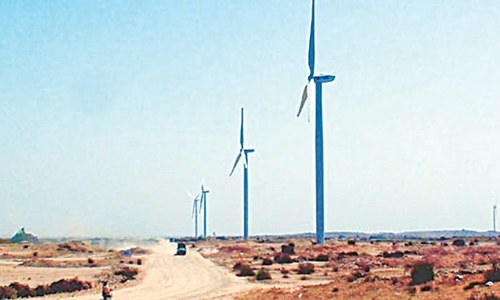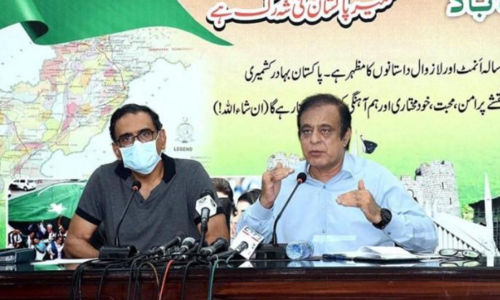THE first thing to note about the recent ‘agreement’ signed on Aug 13 between a group of power-producing companies and a government committee is that there is, in fact, no ‘agreement’. What we have at the moment is an agreement to have an agreement at a later point in time, hence why they are calling it a Memorandum of Understanding (MoU) for now.
So the natural question to ask is what all needs to happen before we can get to an ‘agreement’. There are two hurdles that need to be cleared before an agreement can be reached, and both of these hurdles present their unique challenges. And the government has six months in which to clear both these hurdles failing which the understandings will expire.
First is that the 13-point MoU needs to be cleared by respective authorities from both sides of the negotiating table. It needs to be cleared by the management of the IPPs as well as their boards, which is unlikely to present major issues.
A challenge is possible on the government’s side. The committee that negotiated these understandings now needs to present them for approval to the federal cabinet as well the power sector regulator, Nepra. At the cabinet level, the terms outlined in the understanding might activate some politics, and those who are unhappy with the outcome try and oppose the MoU.
The natural question to ask is what all needs to happen before we can get to an ‘agreement’.
Some of this may have already begun. Senator Nauman Wazir of the ruling PTI has already referred to the IPPs as “criminals”, said an FIR ought to have been registered against ‘them’ — presumably their sponsors and management, for the “excess profits” that the inquiry report alleged they have made over the past couple of decades. In a TV appearance he said the MoU signed between the government and the IPPs “will legalise their criminality” and totally rejected the understandings contained within it. The next day he followed these words up with more objections during the Senate panel hearing. Let’s see if others join him in rejecting the MoU.
Read: MoU signed with IPPs to cut cost, says minister
After the approvals a second challenge looms. Before an agreement can even be reached, Clause 10 of the understanding says all outstanding dues owed to them should be settled “within an agreed time period”.
The amount the government will have to pay for this settlement is estimated by the IPP managements to be above Rs200 billion. The total outstanding owed to power producers is Rs600bn, but not all of those producers are part of these talks. The IPP team tells me they expect a full settlement of all outstanding receivables owed to them before they will consider activating any of the other clauses in the MoU. But the language of Clause 10, where this understanding is written, does not specifically make activation of the terms of the agreement conditional on prior payment of outstanding receivables. The MoU simply says there will be “agreement on payment of receivables within an agreed time period”.
The language of the clause is carefully crafted to leave just enough ambiguity to let the IPPs decide either way, to either press for full payment or activate the terms against an agreed timeline only. They will probably check the temperature at decision time before choosing their course of action on this clause.
The other clauses in the MoU are minor details, even the IPP managements agree. The revised formulae for sharing of efficiency gains or the revision in the Delayed Payment Rate are nothing special. The reduction in the DPR is only for the first 60 days, for example, after which it reverts to an exorbitant Kibor plus 4.5 per cent.
The switch to “take and pay” — a reference to eliminating capacity payments — has been thrown indefinitely into the future since both sides agreed it can only happen after a competitive trading arrangement comes into being, an idea that has languished for more than 20 years already. There is little reason to believe it will happen in the next five years, and even that is being optimistic.
The committee has also agreed to abide by the principle of first in first out when making all future payments, which will prove to be costly for the government. Common practice that helped save the government money was to pay off those bills first that came with the highest interest rates, and FIFO ends that discretion.
The biggest allegation that launched this entire exercise in the first place was the one of “excess profits” that the IPPs were said to have made by misrepresenting their costs or their fuel consumption or their efficiency levels. The government marched into these talks alleging trillions of rupees worth of wrongdoing in “excess profits”. Yet under the MoU, the whole matter has been lobbed into Nepra’s court, which will decide only whether the profits were made in accordance with the 2002 policy, the tariff determinations and the power purchase agreements of the IPPs, based on numbers that were reconciled between government and the IPPs during these talks.
The rupee indexation of returns for local investors sounds good on the surface, until you see that the rupee has been indexed at 148 to a dollar. Given these plants made their equity investments in the year 2002, when the dollar was around a third of this value, the indexation compensates the IPPs very generously in return for losing their dollar-based certainty.
The government has done the right thing to seek these talks, and it has also done the right thing to ensure sovereign guarantees are not violated in the process. But these terms do little for the vaunted goal of tariff reduction. The terms in the MoU are meek and the IPPs have largely escaped the kind of accountability that the government was screaming about when this whole affair was launched. In the meantime, the circular debt, power sector governance and the rising power bills of consumers will remain large challenges for the government.
The writer is a member of staff.
Twitter: @khurramhusain
Published in Dawn, August 20th, 2020















































